Leadership by example
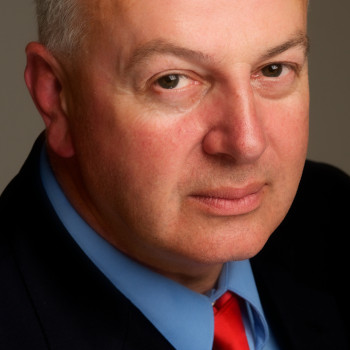
Bobby Kerr, chairman of Insomnia speaks to Charley Stoney about how he has honed his leadership skills over the years and offers some sound advice for those hoping to expand a business in the current climate
11 February 2015
Bobby Kerr is originally from Kilkenny, where his family had the Newpark Hotel for over 50 years, so business is in his genes. He studied catering management in DIT, and then worked as a chef. He was employed by the Campbell-Bewley’s group for 13 years, ending up as the MD.
After Bewley’s, he set up his own coffee shop business, Perk, which he sold to Insomnia in 2003, and took on the MD role across the whole business. In 2010, when he felt the need to move out of the operational side of the business so he could pursue other interests, he moved into the chairman role. Insomnia is now equally owned by Kerr, Harry O’Kelly and John Clohisey of Spar.
Is Insomnia where you started fine tuning your leadership skills?
“I’ve always had leadership skills of some sort. In every job I was ambitious and always got promoted. My leadership style today is probably not a lot different to what it was in some of those early days, in that it’s leading from the front, it’s working closely with people. I spend a lot of time in Insomnia to this day, working with staff and working with customers. It’s always been my forte to be out in the field. I like to call it leadership by example.”
In Kerr’s Bewley’s days, he was the MD with a €40 million turnover and 800 staff. There was huge growth development during his time partly due to the fact that Kerr is always focused on getting a good deal. This can be illustrated by the fact that he used to meet all the Bewley’s suppliers in January and negotiate the costs for the year and not see see them again until the following year!
Kerr is conscious that as a leader you are always negotiating the next stage of growth in the business and getting people to buy into that vision.
“I’d be fairly streetwise, intuitive with a reasonably good gut feeling about things. I’ve always been a good reader of situations, am very commercially driven and I’ve always liked people. So in summary, growth is my forte – making business better, being commercial and profitable and then interaction with people all along the way.”
However, leadership styles sometimes have to change in the face of expansion as Kerr discovered when he sold his first five shops. The way he operated it, being in every shop, everyday, he knew he wasn’t going to be able to grow it unless he approached running it in a different way, and that was the time when he knew he had to step back.
“I realised that there was a limitation to my leadership style in that while it was fine with only five shops, if we had any more it wasn’t going to work, but at least I recognised that I needed to change!
Where is the next phase of growth for Insomnia going to come from?
“Primarily outside Leinster, as we are currently predominately Dublin-based. Eighteen shops opened last year and we plan to open 30 in 2015. We just opened in Ashbourne, Newbridge and Galway, as well as some select stores in the UK through Spar. There are now 300 places where Insomnia coffee can be bought in Ireland. At the end of 2014 we entered the UK market where it is now available in ten motorway service stations, as well as some select stores in the UK through Spar.”
Insomnia is also involved in franchising but it’s very much a minority part of the business. The opportunity came from big cafés such as Compass in UCD, and the Mater hospital, which were looking for a specialist brand that was already successful, and Insomnia fitted the bill.
For some businesses, growth comes from international expansion, however Bobby is keenly aware of the difficulties of this, as when he was MD of Bewley’s they opened in the UK and got very mixed results.
What are the key risks associated with entering the UK market?
“Firstly, you need your own resources on the ground, to have your own people there, who understand how that specific market works. I don’t think you can manage the UK in a service business like ours from Dublin.
“Secondly, you need to clearly understand exactly what market segment you’re targeting, as the UK market has considerable cultural differences. For example, the average spend in a petrol forecourt is much less than here, and there are also major competitors of ours there who are in a dominant position. I’d be wary of going head-to-head with the likes of Costa in London, but we have competed with them successfully here for many years!”
Insomnia’s strategy is to initially avoid big cities like London and major competitors like Starbucks, as being in places like Oxford Street with the associated cost of leasing and fitting out premises requires deep pockets. This is why the first ten Insomnia shops are in the south-west of England (where they have been well received), and if that works as a model they will continue to roll it out to other places in the UK.
What advice would you give to Irish entrepreneurs managing a business on growth strategy?
“I think you need to control your business. I think often small businesses don’t realise when they take in equity partners what they have actually sold. If they take in equity too early, they don’t realise that while it’s nice to get the money, they will have somebody who has a say in how the business is run. I’ve always had partners in the business. You don’t have to agree on everything but do you need to get on. Insomnia is not interested in a venture capital partner as we want to implement our own vision.”
Succession planning – how do you nurture leaders from within and bring them up?
“The reason we have been able to give opportunities to our own people is because we are continually growing. We are always opening new shops, so there are new roles available. Our staff turnover is very low and most of our shop managers are people who joined us in the mid-2000s. Their work ethic has been second-to-none and that culture still prevails.”
Eighty per cent of Insomnia staff has been with them from the beginning as baristas, cashiers etc. One third of the staff is Irish, and the rest are from various places all over the world, and the cultural diversity that the different ethnic groups bring to Insomnia is very important to them.
How you ever failed in business and what lessons did you learn from it?
“I have failed. I opened the Manchester United Café, with a group of others in 2001 on Westmoreland Street. Manchester United is one of the strongest brands in the world but we opened in the wrong place so we didn’t get the right people in and it only lasted six months. We closed it quickly and everyone got paid and the big lesson for me was that it was a good way to fail because our reputations were all intact after it and nobody really got burnt!”
Kerr has been involved with a number of other businesses, and he really enjoyed ‘Dragon’s Den’ which opened up other opportunities like the ‘Down to Business’ Newstalk show. He is also involved in Bang restaurant as one of the stakeholders behind the scenes, does a lot of public speaking and will soon be working with An Post moving forward.
What was the reason for accepting An Post?
“The main reason is I would be passionate, concerned and bothered by the demise of small towns in rural Ireland. Given the closure of Garda stations and banks, bit by bit we are knocking down the building blocks of rural Ireland. I fear for 20 years’ time as to what we would be left with and that’s largely what’s driving my interest.”
Part of Insomnia’s strategy in moving into rural Ireland is to help local business growth, and reduce the division between Dublin and the rest of the country. Kerr is optimistic about rural Ireland’s prospect for growth. The UK has many rural villages which are just groups of houses, with no pubs and shops, and Kerr doesn’t think that is what Irish people want. He can see that there is a conscious effort by some people to recognise what’s happening, and reckons it could be very powerful if everyone plays their part by making an effort to support local businesses. It requires the devising and implementation of a national strategy however, as multinationals and foreign investors want to go where there is infrastructure and employees who suit their requirements, so for him the question is how can that be integrated within rural Ireland.
And finally, what are the positives in Irish culture today that you think help people succeed in business?
“I think the recession, painful as it was, hardened and sharpened businesses. The companies that came through the last five or six years, are well poised to take advantage of a better economy, and I can see that people aren’t as fearful of spending anymore, which is good news for the economy and Insomnia.”
Bobby Kerr was talking to Charley Stoney of The Alternatives group, which works with companies like Insomnia to unearth the best talent in commercial, customer facing and marketing roles, and so help them become the leaders of tomorrow. For more information, contact Charley on cstoney@alternatives.ie.



 Print
Print
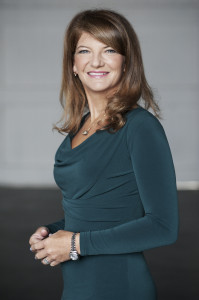
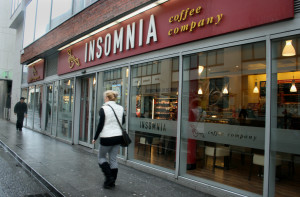
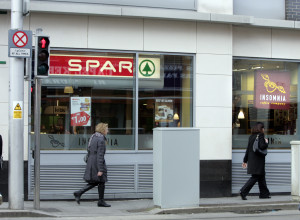

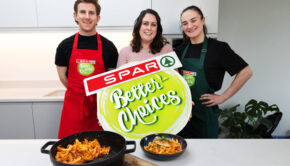
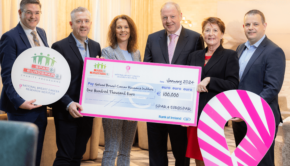

Fans 0
Followers